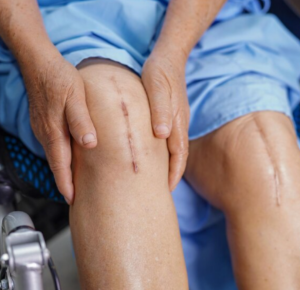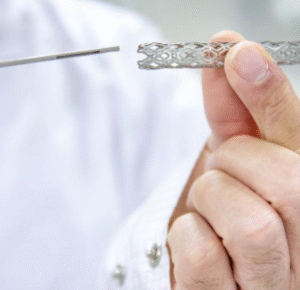
Human Papillomavirus (HPV) is the main culprit in cervical cancer. But how does hygiene influence cervical cancer? Obviously, no one will relate cervical cancer to poor hygiene, but it holds a surprising importance. Further, in this blog, we can break down the science, myths, and assist you in understanding the connection between poor hygiene and cervical cancer.
What is cervical cancer?
Before getting into whether lack of hygiene can cause cervical cancer, it’s crucial to understand better about cervical cancer. Most of the time, cervical cancer is transmitted through sexual contact, and while several types of infections go away on their own, few will persist and cause changes in cervical cells, and further, it turns into a cancer.
How does hygiene influence cervical cancer?
Now let’s come to the topic, is there any link between personal hygiene and cervical cancer? This is one of the delicate questions, and we cannot give answers just by saying yes or no. Also, we can say that lack of hygiene is not a direct cause of cervical cancer, like the way HPV does. Also, it can increase your risk of getting an HPV infection or ruin the overall reproductive health environment, which will contribute to higher cervical cancer rates in some people.
-
Menstrual hygiene and cervical cancer:
Bad menstrual hygiene, like using unwashed clothes, not often changing your sanitary pads, or not washing your hands before and after using pads, will result in genital tract infections. These infections may compromise the vaginal flora, cause persistent swelling, and make your cervix more prone to get HPV infection and persistence.
Really, in a situation where women have no access to clean menstrual products, this risk becomes an actual concern. Further, studies have highlighted that persistent inflammation and recurring infections in the genital tract play a huge role in cellular changes that will result in cancerous transformation when HPV is present.
-
Partner’s genital hygiene:
Cervical cancer is not just caused because of poor hygiene in women, a male partner’s genital hygiene plays a significant role. Further, studies have stated that males who have not undergone circumcision and with poor genital hygiene will have high levels of HPV and other sexually transmitted infections (STIs). Easily, this will be transmitted to women from the men during intercourse, and this increases the risk of developing cervical cancer in women.
So, understand that mutual hygiene in a sexual relationship matters.
-
Lack of awareness and delayed screening:
Further, in those areas where poor hygiene practices are prevalent, there will be a lack of health education, and they won’t have access to screening programs. As mentioned above, poor hygiene will not directly cause cervical cancer, but it often exists with low awareness, reaching out to the healthcare provider in later stages, and a lack of regular pap smears or HPV tests.
Simply, cervical abnormalities will go undetected and untreated for years, and will result in full-blown cancer, so consider going for regular checkups to diagnose and get potential cervical cancer treatment in Coimbatore to safeguard your life.
-
Use of unsafe contraceptive practices:
Few people use non-contraceptive methods such as reused intrauterine devices (IUDs) or chemical douches. These poor hygiene practices will result in chronic cervicitis (swelling of the cervix), further, it develops an environment that may support the persistence of high-risk HPV infections.
-
Nutritional and immune factors:
Lack of hygiene often goes hand-in-hand with poverty, weak immune function, and malnutrition. Those women with weakened immune systems are unable to fight off HPV infections naturally. So, even if HPV infection is the primary cause, lack of hygiene contributes to a weakened biological defense, allowing the virus to persist and damage cervical cells over time.
Is there any indirect connection between them?
Let’s break it down even more precisely. In most cases, HPV takes the front seat when it comes to cervical cancer. Simply, a lack of hygiene doesn’t directly cause HPV or cervical cancer. But here’s what it does:
- Surges the risk of chronic genital infections, which will help HPV persistence.
- Delayed diagnosis due to a lack of awareness.
- Develops an unhealthy environment that weakens natural defenses.
- Reflects socioeconomic conditions that restrict access to vaccinations.
We can say that poor hygiene may not be a spark, but it definitely adds fuel to the fire.
How should I protect myself?
-
Get vaccinated:
You need to understand that HPV vaccines are highly safe and prevent cervical cancer. An individual should get it before they become sexually active, but older individuals may still benefit.
-
Practice safe sex:
During intercourse, use condoms, limit your number of sexual partners, and have open communication with your sexual partner regarding STIs and hygiene.
-
Maintain proper menstrual hygiene:
Ensure to use clean sanitary napkins, regularly change them, and make sure to wash your hands before and after handling them. Never use a cloth without proper sterilization.
-
Prioritize partner hygiene:
Be aware that both partners should maintain genital hygiene. In case the male partner is uncircumcised, they should regularly clear the under foreskin to avoid infection risks.
-
Frequent screening:
Regular Pap smears and HPV tests can easily find unusual changes in the cervix before they become cancerous. Timely detection does all the magic.
Simply, even after taking all the above-mentioned steps, you feel like it’s not working out for you reach out to the best oncologist in Coimbatore to get the desired outcomes.
Bottom line:
In conclusion, we can say that cervical cancer is one of the preventable forms of cancer, it also keeps on claiming lives, notably in areas with poor access to healthcare and poor hygiene. HPV is the main culprit, hygiene just plays a subtle yet significant supporting role in finding who gets infected, who clears the virus, and who progresses to cancer.



